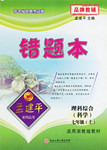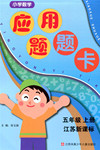
One evening Mr. Green was driving in his Car along a lonely country road.He had been to London where he had drawn£50 from the bank,and he was now returning home with the money that he had put in his pocket book.
At the loneliest part of the road a man in shabby,badly.fitting clothes stopped him and asked for a lift.Mr. Green told him to get into the Car and continued on his way.As he talked to the man he learned that he had been in prison for robbery and had broken out of prison two days ago.Mr. Green was very worded at the thought of the£50 that he had put in his pocket book.Suddenly he saw a police。car and had a bright idea.He had just reached a small town where the speed limit was 30 miles an hour.He Dressed down the accelerator(加速器)and drove the car as fast as it would go.He looked back and saw that the police-car had seen him and had begun to chase him.After a mile or so the police-car overtook him and ordered him to stop.A policeman got out and came to Mr. Green’s car.Mr. Green had hoped that he could tell the policeman about the escaped robber,but the man had taken a gun out of his Docket and had put it to Mr. Green's back.The policeman took out his notebook and pencil and said he wanted Mr. Green’s name and address.Mr. Green asked to be taken to the police station but the policeman said,“No,I want your name and address now.You will have to appear at the police court later.”So.Mr. Green gave the policeman his name and address.The policeman wrote it down,put his notebook and pencil back in his pocket and gave Mr. Green a talk about dangerous driving.Then Mr. Green started up his car again and drove on.He had given up all hope of his£50,but just as he reached the outskirts(外围)to London,the passenger said he wanted to get out here.When Mr. Green stopped the car the man got out and said,“Thanks for the lift.You've been good to me.This is the least I can do in return.”And he handed Mr. Green the policeman’s notebook.
While the policeman had talked to Mr. Green,the thief had stolen the notebook.
1.What was Mr. Green’s purpose of visiting London?
A.To draw some money from the bank. B.To buy a pocket book.
C.To see a friend of his. D.Not mentioned in the passage.
2.What was Mr. Green worried about when he learned the man was an escaped robber?
A.The£50 in his pocket book. B.His life. C.His car. D.His pocket book.
3.The policeman_______.
A.asked why Mr. Green was driving so fast
B.took a gun out of his pocket and put it to the robber's back
C.gave Mr. Green a ticket for dangerous driving
D.wanted Mr. Green's name and address,asking him to appear at the police court later
4.Which of the following TRUE?
A.Mr. Green wanted to be taken to the police station right away but the policeman refused him.
B.The policeman asked Mr. Green to come to the police station fight away.
C.The policeman told Mr. Green that he would have to pay a fine.
D.Mr. Green would not give his name and address but promised to appear at the police court later.
5.What did the robber give Mr. Green when he got out of the car?
A.The gun he had put to the back of Mr. Green.
B.Some money.
C.Some money and the stolen notebook.
D.The policeman’s notebook.
 孟建平错题本系列答案
孟建平错题本系列答案 超能学典应用题题卡系列答案
超能学典应用题题卡系列答案科目:高中英语 来源:浙江省模拟题 题型:完形填空
| 完形填空。 | |||
| It seems like everywhere a person goes there is at least one person with a cell phone to his ear. Even in places 1 cell phone usage is banned such as concert halls or movie theatres there is the 2 offender, or at least a few people using the text messaging feature 3 their phones. Cell phone usage has 4 over the past decade and continues to rise. Nearly 200 5 people in the United States have cell phones and there are 6 over one billion users worldwide. That means there are a lot of phones 7 their frequencies over the airwaves at any given time. Concern has arisen over whether or not cell phone usage 8 harm a person's health. Brain cancer rates in the United States have risen since call phones were 9 , leading some people to wonder if cell phone usage is the reason for the 10 . Some people say the biggest danger 11 cell phones isn't from the either real or perceived potential to develop cancer, but from 12 while using the cell phone. How many of us have seen vehicles driving 13 erratically (不稳定地) down the road. And we often see when we get near the vehicle the driver on a cell phone is 14 on a cell phone. It is a proven fact that a driver on a cell phone is 15 attentive and more likely to get in an accident. And, hands-free sets aren't the 16 that some people may believe. Yes, they 17 both hands for driving and prevent a person from getting a sore (酸疼的) arm, 18 the driver's mind is still 19 the conversation and therefore less attentive to what is 20 around him or her on the road. | |||
| ( )1. A. which ( )2. A. busy ( )3. A. under ( )4. A. been exploded ( )5. A. millions ( )6. A. well ( )7. A. delivering ( )8. A. may ( )9. A. allowed ( )10. A. increase ( )11. A. with ( )12. A. attention ( )13. A. quite ( )14. A. using ( )15. A. more ( )16. A. problem ( )17. A. hold up ( )18. A. therefore ( )19. A. taken up ( )20. A. happening to |
B. where B. always B. on B. exploded B. millions of B. good B. carrying B. must B. invented B. decline B. before B. attractive B. almost B. talking B. less B. question B. pick up B. as B. filled by B. going on |
C. there C. occasional C. from C. been exploding C. million C. better C. taking C. can C. introduced C. improvement C. in C. careless C. hardly C. moving C. least C. mean C. put up C. but C. occupied with C. talking about |
D. here D. occasionally D. to D. exploding D. million of D. best D. sending D. should D. bought D. rose D. on D. inattentiveness D. nearly D. handing D. fewer D. answer D. free up D. though D. picked up D. moving about |
查看答案和解析>>
湖北省互联网违法和不良信息举报平台 | 网上有害信息举报专区 | 电信诈骗举报专区 | 涉历史虚无主义有害信息举报专区 | 涉企侵权举报专区
违法和不良信息举报电话:027-86699610 举报邮箱:58377363@163.com